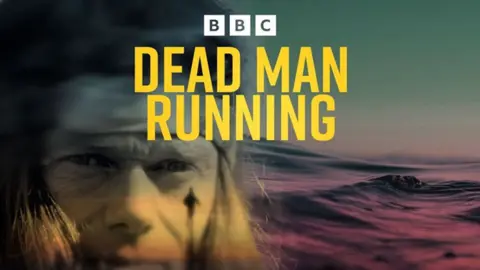Dead Man Running: How a mysterious punk band frontman became an international fugitive
By Myles Bonnar & Calum McKay, BBC Scotland Disclosure

 BBC
BBC
When eccentric Inverness street trader Kim Avis staged his own death in the waters off an infamous Californian beach five years ago, it sparked an international manhunt.
Avis was eventually captured and brought to justice after the women he abused for years came forward to testify against him in court.
A new podcast for BBC Sounds has uncovered the full strange and dark case of Avis, including his early days when he wasn’t Kim and he wasn’t in Inverness.

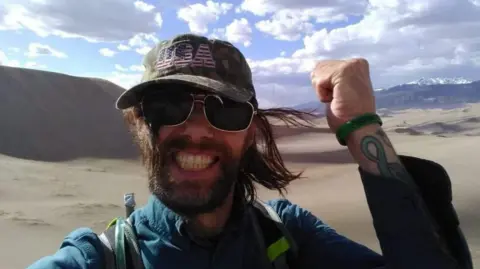
Earlier this year, a BBC documentary revealed how Avis managed to hide his crimes in plain sight, abusing women and children over decades, while creating a public image of a celebrated charity fundraiser in Inverness.
The investigation also highlighted how the fugitive went by multiple names including Kem Avis, Kim Gordon and Cameron MacGregor right up to his capture in the US state of Colorado.
The documentary had most of the story but there were still gaps – particularly about Avis’s life before he appeared in Inverness in the 1990s.
Avis told people he arrived in Inverness on horseback and that was all the folk of the Highland capital seemed to know.
The day after the documentary aired an email arrived with BBC Scotland’s Disclosure team from someone who had been active in the Suffolk punk music scene in the 1980s.
It set the investigating journalists on a whole new path.
The email read: “As a teenage punk, the safest place to hang out in the very early 1980s was the market town of Bury St Edmunds.
“One of the most well-known characters in Bury was Vince Avis – he was never known as Kim.
“Having seen the monster that this man became I thought this information might interest you.”
The author was Paul Devine, formerly the bassist of punk band Cult of the Head in the 1980s.
Avis, known only to them as “Vince”, was the band’s frontman.

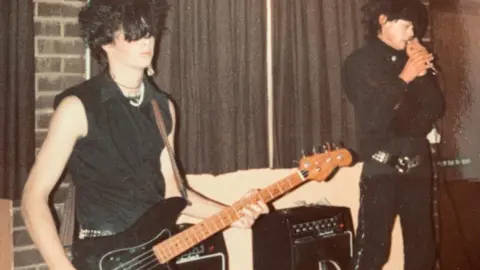
“I think the reason why we got so many people to come see us, apart from the fact we were brilliant, was [Avis’s] presence because he was a legend,” Paul said.
“He was a local hero in a way.”
Paul said “Vince” was one of the first punks in Bury St Edmunds and had attracted a group of loyal followers because of this status.

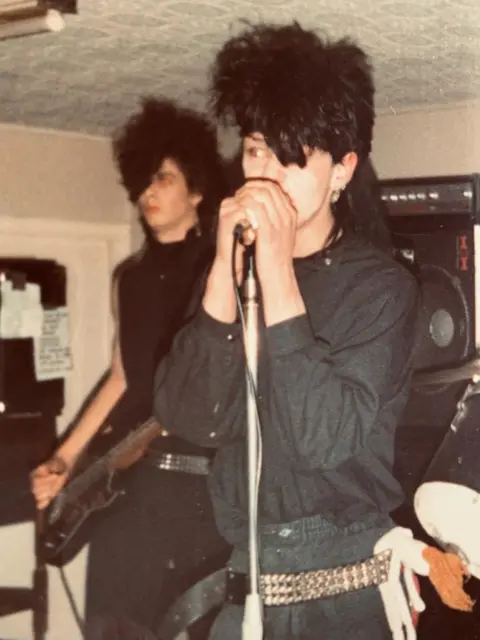
A schoolmate and fan of the band, Sonja Vandersteen Pyatt, remembers the younger “Vince”.
“I recall seeing him with a mohican,” she said.
“That was the first Mohican I think I’ve ever seen.
“I just don’t have any bad memories, and that’s what’s quite hard to figure out.”
Sonja had nothing but positive things to say about the teenager she knew, until she became aware of the documentary about his crimes in Inverness.
She said: “You just don’t know what could have happened to the teenager I would have known because I don’t know very much about his actual upbringing, his childhood. And who knows, maybe he always had a dark side.”


With this new knowledge of where Kim Avis had come from, the focus of the podcast investigation moved to West Suffolk to see if anything more could be learned.
There was no reference to “Vince Avis” in the local papers in the late 70s and early 80s. But there were a few hits for “Kim Avis”.
In his late teens and early 20s, Avis was fined for drug possession and thefts.
There were no articles relating to any serious sexual crimes in West Suffolk.
Nothing that explained why “Vince” disappeared from West Suffolk and arrived in Inverness as Kim Avis.
During our inquiries, one of Avis’s old teachers from King Edward VI Grammar School in Bury St Edmunds got in touch.
He remembered “Vince” as a character, a loner and a bit of a rebel.

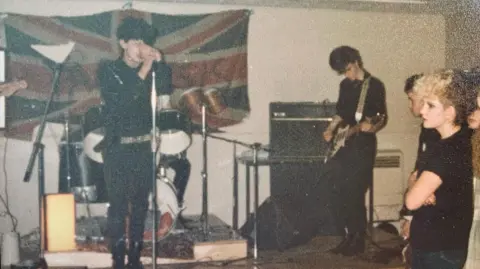
Another old friend, Andrew, told us he remembered a teenage Avis – though again he knew him as “Vince” – from the drug scene in the Bury St Edmunds area.
“There was this massive kind of drug scene going on just under the surface, a dark underbelly of this little town,” he said.
Just outside the town sits the house where Avis spent his late teenage years, one of two cottages on a property set among undulating fields.
One house remains well looked after. The other is dilapidated and derelict. This is where Avis lived, seemingly on his own.
Andrew would go to the house and experiment with drugs.
He recalled one night where he and his girlfriend went round to Avis’s cottage.
“We were having a laugh, you know, and then all of a sudden he turned,” Andrew said.
“It’s like, ‘get out of my house, get out of here’. And he just had a look in his eyes that made me not want to argue.
“It was a very unpleasant experience to have somebody turn like that. I just really wasn’t interested in going back there again afterwards.”
Three-tier tale
Andrew did see “Vince” one last time, about 10 years later in the early 1990s when he came back to Bury St Edmunds.
Avis had been away – in Inverness.
“He had a broad Scottish accent, and I knew he wasn’t Scottish,” Andrew said.
It seems there have been many different versions of Avis over the years.
English, Scottish, punk singer, charity fundraiser, but for a large time a dangerous sexual predator.
As for Paul Devine, the bandmate from Cult the Head, the last time he saw or heard from Avis was decades ago, when he saw him busking outside a branch of the old department store Woolworths.
And then – nothing – until he heard of Kim Avis’s crimes in the BBC’s documentary.
“As uncomfortable as it is, I kind of felt a little bit protective towards the fellow, even though he’s obviously a monster,” Paul said.
“Something’s obviously happened and I wonder whether this is a three-tier tale.
“You’ve got the tier that Sonja and I know, which is a bit of a berk – fascinating, magnetic, charismatic, talented.
“Then you got one of the most awful series of crimes imaginable.
“What the hell happened in the middle?”

